Biomedical research looks for ways to prevent and treat diseases.
Biomedical science refers to a set of sciences that are aimed at developing new therapies, treatments, and technologies that can help with the management of diseases, illnesses, and disabilities. The various categories that fall under the umbrella term of biomedical science include clinical epidemiology, medical microbiology, and biomedical engineering. The types of people who tend to study biomedical science in college are those who enjoy working with complex scientific processes and want to change the world for the better. The research and product development that occurs with biomedical science can help with such medical conditions as diabetes, cancer, stress, meningitis, hepatitis, and all kinds of different emerging diseases.
Biomedical science is increasingly integrating with businesses and advancing with new and highly beneficial technologies, which makes it a very exciting field to enter. Some of the top businesses within the industry include Boston Scientific, Johnson & Johnson, Procter & Gamble, and Edwards Lifesciences.
If you're interested in getting into biomedical science, the first step is to make sure that you obtain the appropriate college degree to do so. There are an array of programs that you can enroll into at UCI that will allow you to gain a foothold in the industry, the primary of which are offered through the UCI School of Biological Sciences as well as the UCI School of Medicine. Before taking the necessary steps to getting involved in biomedical science, you should know more about the various aspects of this science, which include biomedical research, biomedical treatment, and biomedical services and solutions.
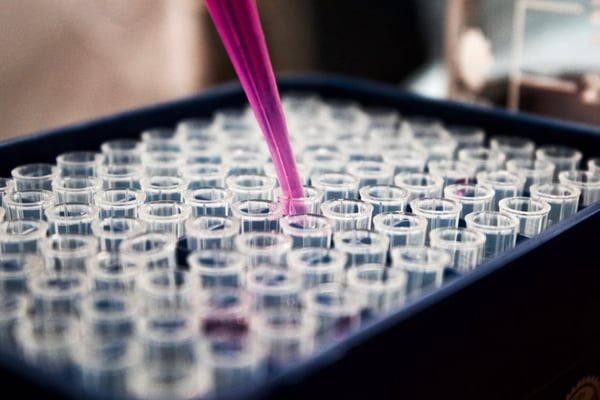
Biomedical research is a wide area of science that's designed to identify methods of preventing and treating diseases that can cause illness and death. This field of research covers many life sciences and physical sciences, which can include dozens of different areas of focus like urology and molecular pathology. When you engage in biomedical research, you can perform an array of different tasks that focus on everything from studying a single molecule to studying complex human functions, all of which are essential for gaining new knowledge on how trauma, genetic defects, and diseases affect the human body. Some of the latest advancements in the techniques of molecular biology have helped researchers better comprehend molecular-level and cellular-level processes.
The biomedical research that's performed by scientists, chemists, and biologists is used to create therapies and medications that are then tested in clinical studies and trials. Much of the biomedical research that focuses on disease is first tested on animals before further testing occurs with humans. By testing on animals, any adverse side effects of the research can be identified and eliminated before human testing takes place. Model organisms have also been used heavily with this research over the past decade. The insights gained from these organisms can be applied to human health and disease. Model organisms such as fruit flies and mice are commonly used because they are easy to breed in a laboratory setting.
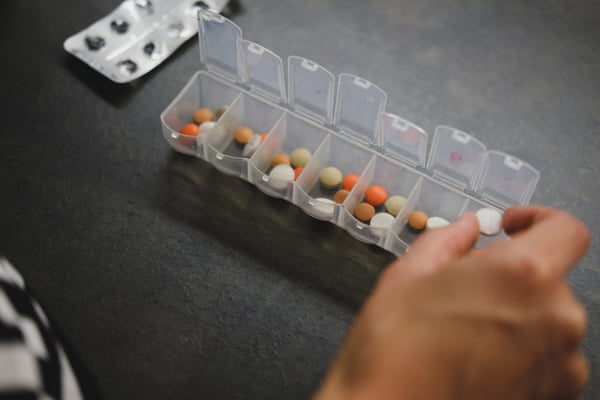
Biomedical research is important because it is the first step towards the creation of new medications and treatments that help to manage all different types of health conditions and diseases. Without this research, the prevention and cure of diseases would be practically impossible. To better understand the role that this research plays in the development of medicine and treatment, you should take a look at progressive diseases like Alzheimer's and Parkinson's disease. While many of the genes that are known to be risk factors for these diseases have been properly identified, the only way to develop effective treatments is by understanding the role the proteins inside of these genes play in cellular processes.
Successful medicines and therapies can't be created solely by identifying what causes a health condition or disease. Biomedical researchers need to fully comprehend the functions and processes of these risk factors before they can develop something that puts a stop to the cause of the condition. Because of the necessity of biomedical research in the development of medical treatments, individuals who become biomedical researchers are in high demand by small bio-engineering and biotech firms as well as larger pharmaceutical companies. In the UK alone, biomedical scientists are tasked with performing upwards of one billion pathology tests and 12 million physiological tests every year.
As touched upon previously, biomedical research paves the way for the creation of a wide range of different biomedical treatments. By understanding the molecular and cellular processes that occur in the body, biomedical researchers provide pharmaceutical companies and biotech firms with the information and data that they require to start creating new drugs and treatments. This research can be either basic or applied research. Basic research focuses entirely on how living things work and the many processes that are involved with both life and disease.
While basic research isn't directly intended to create a biomedical treatment, it helps to provide the basis for more direct applied research. Applied research always has a specific objective to it, which could be for the creation of a new therapy, drug, or surgical treatment. The existing knowledge that has been garnered from basic research can now be applied to a certain biomedical problem. This research is conducted on animals, tissue cultures, computer models, and humans. Applied research can be used to determine what kind of drug can be developed in order to manage or even cure skin cancer. It's at this point that research stops and biomedical treatment begins.
The information and testing results that are gathered via basic and applied research is then used to develop various drugs and medical treatments, all of which are tested in clinical research. All new drugs and treatments must go through extensive clinical research before they can be approved by the FDA. Clinical testing is conducted solely on human beings within a clinical or hospital setting. The main type of clinical testing involves determining the side effects of a new drug that's looking to be placed on the market in the near future.
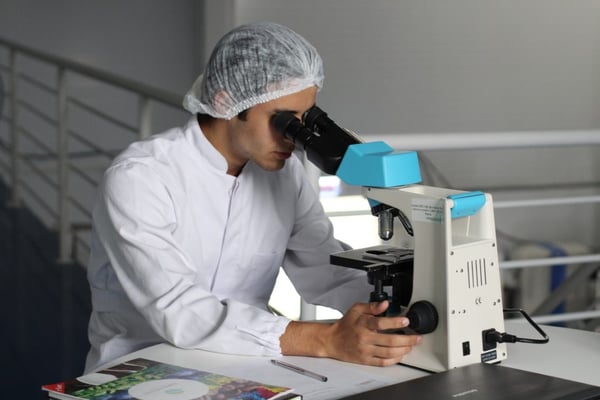
One example of a biomedical treatment comes in the form of an arthritis drug that's able to provide treatment to patients who are suffering from blood cancer. Scientists at the University of Sheffield discovered that a medication known as methotrexate is able to effectively reduce red blood cell production to normal levels. While clinical trials have yet to be fully conducted, the scientists at Sheffield have already performed extensive testing on fruit fly cells and human cells, which has allowed them to alter the methotrexate drug on a molecular level to the point where it's specifically targeted to treat individuals suffering from blood cancer. The earliest example of a biomedical treatment was the creation of penicillin in 1928, which is considered to be the first antibiotic ever created.
There are also many different types of modern biomedical technologies that are used for treatment. For instance, advanced 3D printers are currently being used to create new biomedical treatments. Tissue transplants, grafts, and even organs have been created with 3D printing. It's also important to take a look at how 3D medical imaging has helped with the creation of new biomedical treatments. Through such imaging technologies as DXA scans, MRIs, and sonograms, biomedical scientists have been able to create various interactive representations of organs and tissues, which are used by doctors to diagnose different medical conditions.
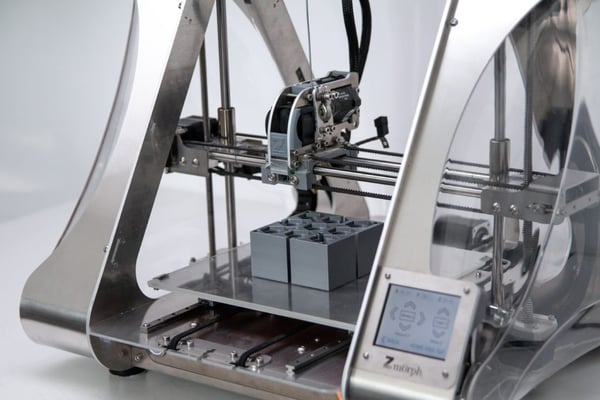
Most of the top biomedical companies in the world offer medical device services and solutions, which means that they provide hospitals, clinics, nursing homes, and urgent care centers with the equipment that they need to treat their patients more effectively. Pharmaceutical companies that have used biomedical researchers to help with the creation of new medications and treatments make them available to use by the public via over-the-counter or prescription medications. When looking at biomedical companies like Roche, most of their solutions focus on diagnostics for an array of different diseases and health conditions. From cancer screenings to diabetes monitoring, the solutions that they provide are aimed at helping doctors more effectively diagnose a patient.
While biomedical scientists and companies typically don't have direct contact with patients, it's possible to use the services and solutions provided by biomedical companies via clinical trials. Since biomedical companies can create everything from new medical devices to new cancer treatments, the clinical trials that are available to human volunteers can vary significantly from company to company.
These trials and services are beneficial because they are meant to be safe enough to be effectively used by humans. Comprehensive animal testing is always performed before any biomedical companies take their testing to the next stage. Once a medication or medical device has reached the clinical trial stage, it's likely that the product is nearly ready to be placed on the market, which means that there should be very little risk for you to take part in the trial.
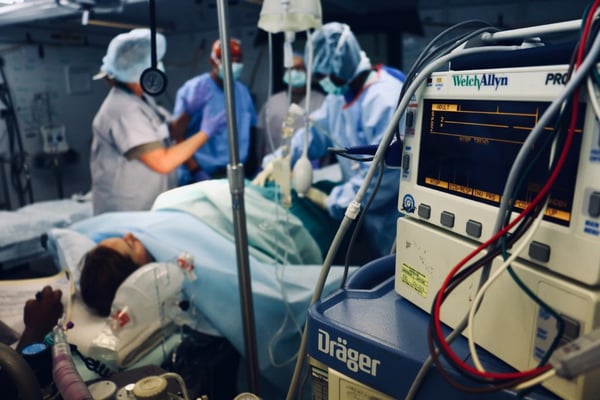
Are you interested in the biomedical science field? If so, apply now at University Lab Partners to create your biomedical startup at a biomedical, medtech, and life science incubator. As the first wet lab incubator in Orange County, you'll find that University Lab Partners provides startups with everything they need to succeed, which includes fume hoods, tissue culture labs, and freezer farms, world class amenities & more!
Revised 11/17/2020
Download The Ultimate Guide to Wet Lab Incubators in Southern California, a handbook to assist life science start-ups through the entire decision-making process to find wet lab space.
Download Now